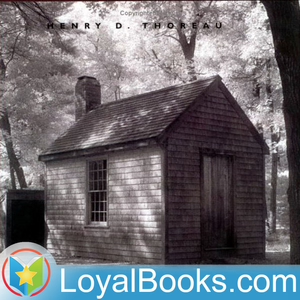
Songs of England
04/26/21 • 24 min
1 Listener
English Heritage manages some of our most important historic sites, such as Stonehenge and Hadrian's Wall. In this Open Country, folk singer and song collector Sam Lee explains how he has paired these sites with relevant or revealing folk songs from the British Isles.
We meet Sam at Stonehenge, to hear him perform the song 'John Barleycorn'. From Salisbury we travel to Hadrian's Wall with The Brothers Gillespie and the borders song 'When Fortune Turns the Wheel'. At Whitby Abbey Fay Hield performs the tragic tale of 'The Whitby Lad' and at Ironbridge, the birthplace of industry, Abel Selaocoe sings about the impacts of the industrial revolution in 'The Four Loom Weaver’.
The aim of English Heritage and the musicians of the Nest Collective is to connect us to the people who inhabited these historic landscapes through the power of song. The music gives voice to how people felt and how they lived in a way that the monuments and buildings we have left cannot. Their hope is that by hearing these stories from the past we can connect with the landmarks we see today, even when we can’t visit them in person.
Produced by Helen Lennard
Photo: English Heritage/Andre Pattenden
English Heritage manages some of our most important historic sites, such as Stonehenge and Hadrian's Wall. In this Open Country, folk singer and song collector Sam Lee explains how he has paired these sites with relevant or revealing folk songs from the British Isles.
We meet Sam at Stonehenge, to hear him perform the song 'John Barleycorn'. From Salisbury we travel to Hadrian's Wall with The Brothers Gillespie and the borders song 'When Fortune Turns the Wheel'. At Whitby Abbey Fay Hield performs the tragic tale of 'The Whitby Lad' and at Ironbridge, the birthplace of industry, Abel Selaocoe sings about the impacts of the industrial revolution in 'The Four Loom Weaver’.
The aim of English Heritage and the musicians of the Nest Collective is to connect us to the people who inhabited these historic landscapes through the power of song. The music gives voice to how people felt and how they lived in a way that the monuments and buildings we have left cannot. Their hope is that by hearing these stories from the past we can connect with the landmarks we see today, even when we can’t visit them in person.
Produced by Helen Lennard
Photo: English Heritage/Andre Pattenden
Previous Episode

Canna
Canna is four miles long and one mile wide. It has no doctor and the primary school closed a few years ago. The islanders depend on a weekly ferry service for post, food and medical supplies. Fiona Mackenzie and her husband, Donald, have lived on the island for six years. Donald is the harbourmaster and Fiona is the archivist for the priceless collection of Gaelic music, photographs and literature stored in Canna House. She's also an accomplished folk singer - the ideal guide for an Open Country visit to the island.
The folklorist and Gaelic scholar, John Lorne Campbell, bought the island in the 1950s. His family was part of Scotland's landed gentry, but he was opposed to sporting estates and absentee landlords and wanted to develop Canna as a flourishing, Gaelic-speaking community. He lived in the island's Big House with his wife, Margaret Fay Shaw - a Gaelic song collector. Canna House became a bohemian Hebridean retreat with a constant flow of colourful visitors including Compton Mackenzie, the author of Whiskey Galore. Campbell's vision for Canna never fully materialised and he gave the island and its archive to the National Trust for Scotland in 1981. It is run as a sheep and moor farm and has a population of just 14. As well as her archive work, Fiona Mackenzie gives visitors impromptu history and nature walks. She and Fiona Hutton, owner of the island's only guesthouse, take the listeners on a tour of some of the island's sights of historic interest. Fiona and her neighbours also discuss the rewards and challenges of living in a small island community, particularly during the Covid lockdowns.
Down at the shoreline, she finishes the programme with a treat for the listener, a 'Song for Attracting Seals' – .and she promises it does work!
Next Episode

Tales from the Black Mountains
Travel writer Antonia Bolingbroke-Kent moved to a cottage deep in the Welsh Black Mountains at the end of October last year, arriving just two hours before the autumn lockdown began. She’s pretty much been in lockdown since that day so, unable to go anywhere or see people, has spent the months exploring the mountains from her new front door. She’s walked hundreds of miles, OS map in hand, exploring this new landscape - its ancient sites, high ridges, wooded valleys and peaty uplands. Antonia immerses us in this place and its wildlife, and hears stories from her new neighbours - people who know every crease of the hills and every bird call, as well as the area's history, myths and legends. While reflecting on this exploration, she explores the process of the unknown becoming home.
Producer: Sophie Anton
If you like this episode you’ll love
Episode Comments
Generate a badge
Get a badge for your website that links back to this episode
<a href="https://goodpods.com/podcasts/open-country-78467/songs-of-england-13320273"> <img src="https://storage.googleapis.com/goodpods-images-bucket/badges/generic-badge-1.svg" alt="listen to songs of england on goodpods" style="width: 225px" /> </a>
Copy




